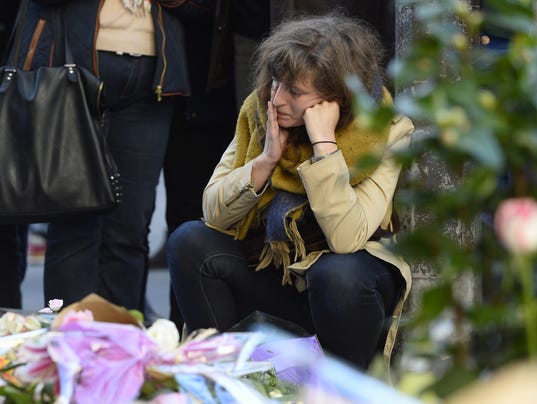The deadly terror attacks in Paris are likely to strike financial markets, too, when trading resumes Monday. But the initial losses expected in risk assets like stocks and the shift into safer holdings like U.S. government bonds and cash are likely to be short-lived, history says.
Investors’ knee-jerk reaction to terror attacks and other “shocks” is to sell so-called risky assets until they have a chance to measure the resulting economic fallout, according to data compiled by Sam Stonavall, U.S. equity strategist at S&P Capital IQ. The good news is the losses tend to be recouped relatively swiftly as Wall Street typically concludes that both the domestic and global economy won’t be derailed by acts of terror.
Terrorism, to a certain degree, is designed in part to harm economic activity, by attempting to scare people and keep them from going about their normal routines, such as going out to restaurants, shopping at the mall or boarding a plane for vacation.
Perhaps the best example of the market’s initial plunge and eventual recovery was the 9/11 terror attacks in the U.S., according to S&P Capital IQ data. The Standard & Poor’s 500 stock index fell 4.9% on the first day of trading after the market was shuttered for four days. The total stock market loss following 9/11 was 11.6% — which adds up to a “correction” – when the market bottomed 11 calendar days later. However, U.S. stocks then rebounded and recouped all its losses within 31 days.
